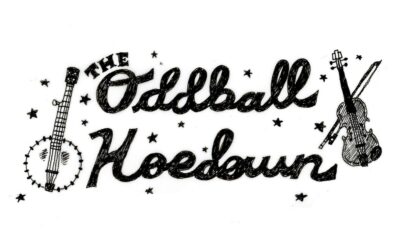In Emily Thomas Mani’s novella, wrestling is more than a sport — it’s a worldview, a narrative to live by. Wrestling is worthy of faith.
The Church of Wrestling opens on 11-year-old undefeated wrestler, Jenny Arsenault, in a hospital room, where she visits with her mother for the very first time — or as much as she can visit with a woman who is unconscious, intubated and not expected to live. Even as Jenny watches her mother’s breathing tube force air in and out of her lungs, Jenny filters the scene through terms of wrestling: She describes her mother’s chest as appearing to be repeatedly punched, her mother’s body as small enough to be in Jenny’s weight class. Really, Jenny just wants to flee the hospital room and prep for the next day’s tournament, the Canada East Championship.
Coached by her dad, Billy — a former professional wrestler — Jenny’s failproof wrestling principle is Strike First: Tackle the other wrestler the millisecond the referee’s whistle blows. At the championship, Jenny rebels against her father’s insistence on the Strike First principle and tries Counter Attack instead. She loses. She didn’t feel anything in her mother’s hospital room, but as she shakes her opponent’s hand, she goes numb.
When Jenny and her father arrive home, there’s a message on the answering machine: Jenny’s mother is dead.
Wrestling has long dominated the Arsenault family’s life. Every Friday night, they rewatch Billy’s old matches on tape, Jenny dozing off and Billy obsessing over the Olympic match that would have made him a gold medalist if the Canadian government hadn’t boycotted the 1980 Olympics in Moscow, or if Jenny’s mother hadn’t been suffering from postpartum depression, or if Billy hadn’t been needed at home. Through her father’s example, Jenny has instinctively learned to view the world through the lens of wrestling. When confronted with her estranged mother’s death and her own wrestling defeat, Jenny recognizes the confines of this perspective. She demands to know, “How do you strike first at dying?”
Split/Lip Press is an independent publisher based in Nebraska, and The Church of Wrestling is another installment in their list of boundary-breaking books. If, like me, you wailed over Netflix’s cancellation of Glow, this novella is for you. Jenny not only excels in a sport dominated by men (especially admirable given that this book is set in the ’90s), but she even finds boys easier to wrestle than girls — mostly because boys underestimate her. Jenny expresses disgust over expectations for women with all the candor and snark of a preteen girl. In her mother’s hospital room, Jenny watches The Price Is Right, and when the episode’s contestant has to price a new home gym, Jenny snorts over the women models demonstrating the equipment. She thinks, “They don’t have any muscle mass. I doubt they ever go to the gym. They probably lie around all day drinking champagne.”
At the gym where Jenny trains, the mothers of the boys view Jenny as an anomaly, fully expecting Jenny to quit wrestling after puberty. Jenny knows womanhood and wrestling aren’t in competition. She reflects, “[The mothers] couldn’t see that my girlhood was already real and happening alongside the wrestling, even when I made my dad take me to the mall to get my ears pierced with tiny synthetic ruby earrings because that was my birthstone, even when I painted my nails with sparkly purple nail polish and wore pink sweatpants over my wrestling singlet. They saw the ‘girly’ things as proof of something on the inside trying to get out, even though they were already on the outside.”
It isn’t womanhood that prompts Jenny to quit wrestling, but grief. Grief is difficult to articulate, often existing beyond the reach of language — more so when one loses a person they rightfully should have known but didn’t. For Jenny, coping looks like staying away from the gym and binge-watching TV. For Billy, it’s taking his obsession with wrestling to a whole new level.
A few months after her mother’s funeral, Jenny is alarmed to learn that, when she thinks her father is attending a grief group, he has actually started his own religion: The Church of Wrestling. For Billy and his followers, wrestling is the ultimate metaphor to apply to the world, to strive to tackle the contradictions and hardships of life. When Jenny discovers the church, they are in the midst of reciting their creed, which begins: “I believe that wrestling is a story, and I believe that story. I believe that the story is life, and life is wrestling.” Writerly, introverted types like me joke that sports seem like a cult, and in this novella, wrestling literally becomes one.
Mani’s novella in no way resembles the glut of cult novels that have become prevalent in recent years. For a book titled The Church of Wrestling, a reader might expect to get to the church quickly, yet Billy’s group doesn’t appear until almost halfway through the novella. The Church of Wrestling is not concerned with salacious, sensationalized details about the cult. It’s a novella about crafting a methodology to live by when life seems impossible. It’s about how, in the desperate search for meaning, a person can allow that methodology to warp their perception and drive their loved ones away. But it’s also about how, if they’re lucky, they can find their way back to those loved ones.
Mani’s novella feels particularly timely, as this period of prolonged uncertainty drags on, when our collective grief has forced us to reckon with how we find purpose in life. In their creed, Billy and his followers state, “I believe in the worthy opponent. I will find my opponent.” When viewed through the lens of the metaphor Mani has constructed through Billy’s church, the novella seems to suggest that our worthy opponent is mortality itself. As another wrestler tells Jenny, nobody is undefeated forever. But we keep our shoulders up. We refuse to be pinned.
The Church of Wrestling is a philosophical work told through its fierce, colorful characters that examines grief, obsession and the ties that bind us together. It asserts that life isn’t about winning; it’s about holding onto faith in each other and fighting our best fight, forever and ever, amen.



